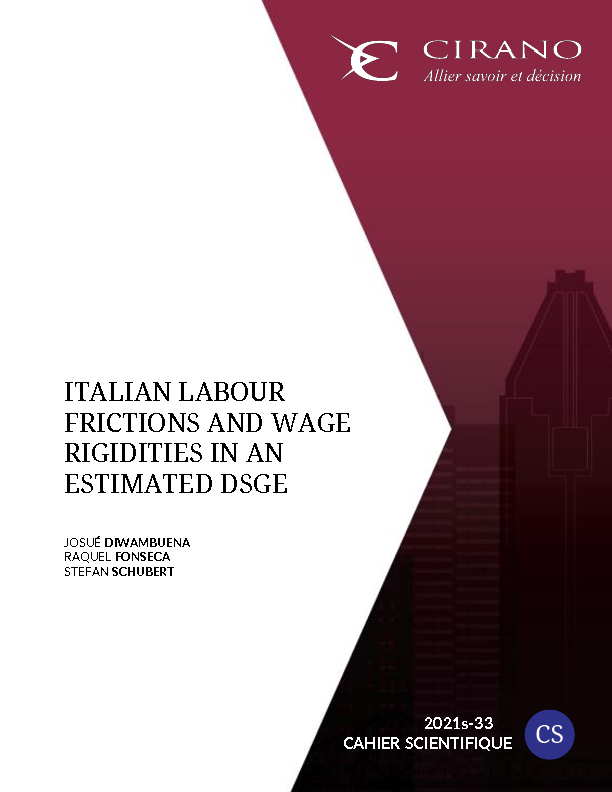Italian Labour Frictions and Wage Rigidities in an Estimated DSGE
This paper investigates how Italian labour market institutions influence business cycle fluctuations. We apply a DSGE model that features Italian labour market rigidities and we estimate the latter on Italian data using Bayesian techniques to assess the effects of demand, supply, and labour market shocks on the macroeconomy, and to measure their significance for economic fluctuations. Our results show: First, technology, time preference and wage bargaining shocks are key drivers of economic fluctuations across horizons. Second, matching efficiency and wage bargaining shocks are significant sources of unemployment and vacancies fluctuations but their role is limited for output fluctuations. Third, labour market relaxation policies have only marginally contributed to the reduction in unemployment. Last, accounting for wage rigidities influences labour market dynamics and helps the model to fit data well. We, therefore, urge policymakers to support additional changes in labour market institutions.




